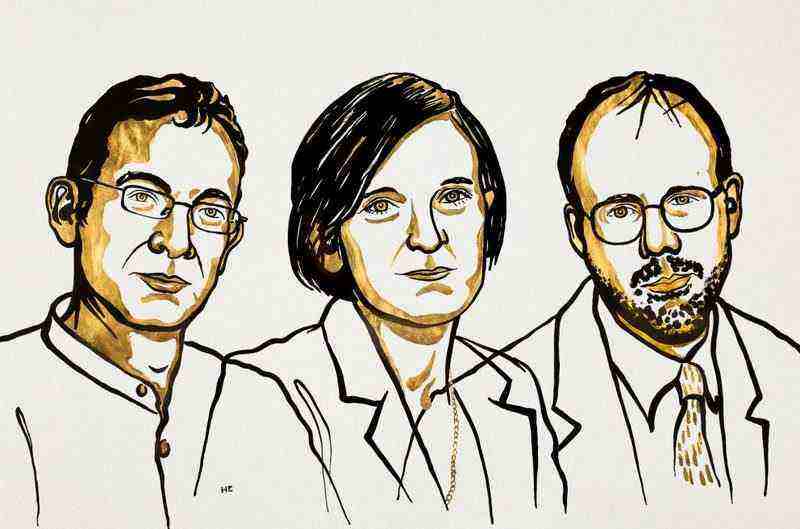The 2019 Nobel Memorial Prize in Economic Sciences has been given to Abhijit Banerjee, an American economist of Indian origin, which he shares with his wife Esther Duflo and Michael Kremer. The Royal Swedish Academy of Sciences made the announcement on Monday, applauding the trio “for their experimental approach to alleviating global poverty. While Abhijit Banerjee and Esther Duflo are both Economics professors at Massachusetts Institute of Technology (MIT), Michael Kremer teaches at Harvard University.
BREAKING NEWS:
The 2019 Sveriges Riksbank Prize in Economic Sciences in Memory of Alfred Nobel has been awarded to Abhijit Banerjee, Esther Duflo and Michael Kremer “for their experimental approach to alleviating global poverty.”#NobelPrize pic.twitter.com/SuJfPoRe2N— The Nobel Prize (@NobelPrize) October 14, 2019
The trio’s work consists of more than two decades of research in development economics. Their experiment-based approach divides poverty as an issue into smaller, more manageable questions. These questions are best answered through experiments on the most-affected people, which Abhijit Banerjee has been doing in collaboration with others have been performing around the world in developing nations like Kenya.
Abhijit Banerjee is a Bengali by birth and has done his Bachelor of Science in Economics from Presidency College, Kolkata. He is only the second person of Indian origin to win the Nobel Memorial Prize in Economic Sciences, after Amartya Sen in 1998. Esther Duflo, at 46, is the youngest to win a Nobel Prize in this field and only the second woman to receive this honour.
The trio’s experiments, called ‘Randomized Control Trials (RCTs)’ aim at measuring the impact of development innovations and form an integral part of modern development economics. Abdul Latif Jameel Poverty Action Lab (J-PAL), founded by Abhijit Banerjee and Esther Duflo among others, is one of the frontrunners in this research and continues to analyze and reduce poverty worldwide.










Discussion about this post